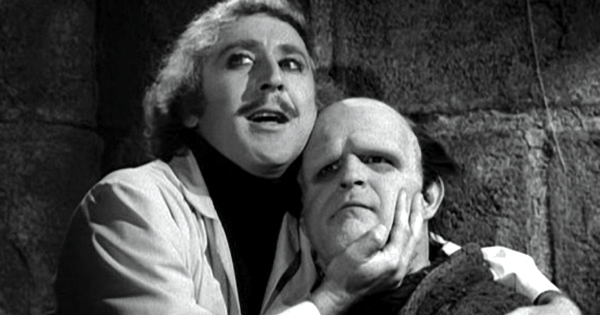
By JAMES HARTLEY
@JamesHartleyETC
This actor starred in “Young Frankenstein,” “Willy Wonka & the Chocolate Factory” (the real one, not that Tim Burton remake), “Blazing Saddles” and “The Producers,” and his impact on culture and comedy was immeasurable.
Doesn’t ring a bell? How about those sarcastic “Oh really? Tell me more” memes with his snarky smile, purple suit and burnt orange top hat. There we go. Now we’re on the same page.
Despite having not starred in a feature film since 1991, Gene Wilder’s influence on pop culture is prevalent to this day. His ability to make people laugh is what has set him in stone. It will keep his memory, and influence on comedy, alive long after his death last month from complications related to Alzheimer’s.
Wilder acted in 22 films and had starring roles including Willy Wonka, Jim “The Waco Kid” and Leo Bloom, cultural icons known even by millennials, and that’s saying something.

His role as Willy Wonka is likely his most recognizable. Despite not being extremely popular in the box offices, “Willy Wonka & the Chocolate Factory” highlighted Wilder’s ability to blend whimsy and heavyheartedness into one character and became a true classic.
His most impressive role, however, was in Mel Brooks’ “Young Frankenstein,” which Wilder conceived and co-wrote. Wilder balances the sanity and madness of Dr. Frederick Frankenstein (it’s FRONK-IN-STEEN) and makes it look effortless.
From his reaction to Frau Blucher’s line, “Stay close to the candles, the staircase can be treacherous,” while holding three unlit candles to his song and dance to “Puttin’ on the Ritz” alongside his Frankenstinian creation is a comedy masterpiece.
It also resulted in one of his only two Oscar nominations, this one for best Writing Adapted Screeplay. “The Producers” brought him his first nomination, that one for acting.
Wilder starred in several Broadway roles after serving in the Army for two years.
Born Jerome Silberman to Russian-Jewish parents, he changed his name to Gene Wilder when he starred in Macbeth, saying he could not see “Jerry Silberman as Macbeth” on the marquee.
[READ MORE: Despite glossy look, ‘Resident Evil 4’ rerelease pointless]
When legendary director Brooks found Wilder, a star team was born.
The three films Brooks and Wilder partnered on were instant cult classics, and deservingly so.

Comedian Richard Pryor saw the end of Wilder’s feature film career, starring with Wilder in four films including his last, “Another You,” in 1991.
The two made one of the greatest comedic duos ever. Wilder co-starred with Cleavon Little in Brooks’ “Blazing Saddles,” which Pryor wrote. It was the first time Pryor and Wilder worked together.
It was Wilder’s most controversial film, and likely one of his funniest performances. “Saddles” was a hilarious satire that would likely be deemed too racially offensive to produce today.
The story focused on Bart (Cleavon Little), a black sheriff in a racist western town, and Wilder’s character Jim, the local drunk and Bart’s only friend, as they protected their homes from a band of criminals.
“Saddles” saw the most box office success of any of Wilder’s films. “Stir Crazy,” where Wilder starred with Pryor, was the second-most successful.
He and Pryor also worked together on “Silver Streak” and “See No Evil.”
[READ MORE: ‘Hollars loses sentimental impact in overuse of comedy]
Wilder would leave the public eye for the most part after “Another You,” displeased with the quality of most screenplays.

Despite his departure from the limelight, Wilder’s films have remained culturally impactful.
Wilder appeared on TV as late as 2003 in “Will and Grace.” His performance Dr. Stein won a Primetime Emmy Award for Outstanding Guest Actor in a Comedy Series.
Wilder modernized comedy in Hollywood by moving away from “The Three Stooges”-style comedy and pushing one-liners and larger than life comedic situations to the forefront of his films.
His talent with dry humor and brilliant one liners brought a more subtle form of comedy to the forefront of the genre.
Still, Wilder’s legacy is built on his contributions to cancer research after his third wife, Gilda Radner, died from ovarian cancer. The Gilda Radner Ovarian Cancer Detection Program at the Cedars-Sinai Medical Center was named after Wilder’s wife because of his efforts after her death.
[READ NEXT: Wilder’s classic ‘Wonka’ showcases legend’s talent]
Correction: A previous version of this story spelled “treacherous” as “traitorous.”














